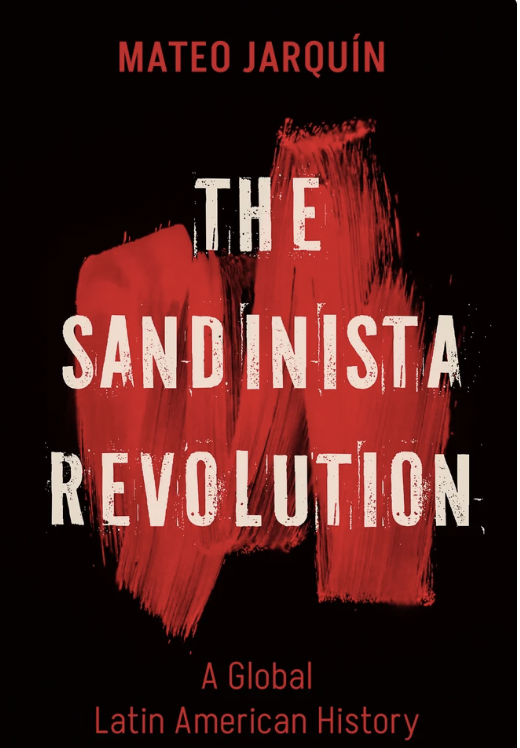
The Sandinista Revolution: A Global Latin American History is a beautifully-written tribute to the global interconnectedness of political movements and the course of history itself. Though many may perceive the Sandinista Revolution of the late twentieth century as a distinctly Nicaraguan event, impacting and influenced by mostly regional groups and struggles, the reality of the situation demonstrates the necessity of viewing events like this through a global lens.
For those less familiar with the topic in question, the Sandinista Revolution (also known as the Nicaraguan Revolution) refers to the period of time in Nicaragua between the 1960s and 1990 during which the leftist revolutionary group known as the Sandinistas overthrew the US-backed Somoza dictatorship, installed themselves in power, and subsequently fought against the counter-revolutionary, CIA-supported Contras. With the Sandinistas (FSLN) being supported financially by the Soviet Union, this conflict is known as one of the most prominent proxy wars of the Cold War era.
Author Mateo Jarquín presents a history and overview of this movement in an accessible, engaging package. He explains the revolution and its context in a manner both approachable to those with less experience with the topic while also ensuring enough depth of the analysis to leave the more well-versed reader with fresh and necessary insight.
Jarquín utilizes interviews with top FSLN officials, government documents, and personal papers of the era’s critical figures to detail the history of the conflict, focusing on the period between 1977 and 1990. Specifically, he organizes his analysis in three phases of the Sandinista era (that are also typical of many similar revolutionary movements): insurrection and state breakdown, consolidation in power, and civil war. Throughout the text, he frames the events discussed within their larger global context. This is what sets Jarquín’s account of the Sandinista movement apart from other work on the topic. As the son of diplomats, he has a unique perspective on the truly interconnected nature of global politics that he believes is crucial to truly understanding the Sandinista Revolution. He writes, “At every stage, and in many ways—such as its ideology, the way it organized its political economy, its rise to power in the first place, and surprising outcome in the form of a transition to electoral democracy—the Sandinista Revolution was shaped by how it fit within a global picture.”
This account reinvigorates this historical event with new life and a clear necessity of understanding its significance. For Nicaraguans, he believes understanding this movement is critical for a true appreciation of their culture and society as a whole. He writes, “Public life in Nicaragua today— its political arrangements, institutions, the way people identify themselves— developed as a result of, or in reaction to, the conflicts engendered by the crisis of the Somoza dictatorship and the subsequent attempt by the Sandinistas to rapidly vanquish poverty and inequality. We live, to paraphrase Mexican intellectuals writing about their own country’s contemporary history, in the ‘shadow’ of the Sandinista Revolution.”
Americans, too, should educate themselves about the role their country played in this movement, he argues. “This work is indispensable, not only because US citizens deserve to know what their leaders do abroad in their name, but also because American policies—which went beyond the Contra operation to include economic sanctions, diplomatic isolation, and direct sabotage by CIA agents— had a decisive impact on Nicaragua’s revolutionary process,” he writes.
This recommendation came to Diplomatica Global Media’s Great Reads from Around the World project by way of the Embassy of Nicaragua to showcase the vibrancy of Nicaraguan culture and literature. Reading the text, it’s easy to understand the choice. Anyone with even a slight interest in global and national politics should pick up this necessary account of the Sandinista Revolution.
Did you know? Every book you buy through our Bookshop.org shop – whether from our curated selections or any title of your choice – directly funds Diplomatica’s independent journalism and global programming.
Don’t just read—invest in reporting that matters. Bookmark our shop and make your next purchase through our links to power the work behind the headlines.